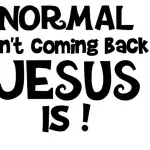
In some ways, what has been even more troubling than the murder of UnitedHealthgroup’s CEO, Brian Thompson, has been the support that people have offered for his murderer. Citing the number of people who have theoretically died or suffered thanks to the decisions made by health insurance companies, the amount of money made by CEOs, and supposed injustices of one kind or another, an unsettling number of spectators to the whole tragedy have argued that Thompson’s murder was understandable, if not justified.
How did we get here? How can people justify murder, particularly those who describe themselves as progressive, loving, compassionate, and opponents of gun violence?
It is impossible to be certain, of course, but there seems to be trends in both society and the academy over the last seventy years that help to account for the moral void that seems to lie just below such contentions:
One, is the rise of situation ethics. Crafted by Joseph Fletcher, situation ethics stresses the importance of love as determinative in making moral judgments. It holds that changing circumstances make it impossible to rely on timeless moral absolutes. And, as such, it holds that a moral decision can only be made on a case to case basis.
Inevitably, of course, this leads to moral relativism, and it invites the kind of rationalizations that have been offered for Thompson’s murder. It also legitimates the abandonment of moral codes and standards. So, for example, the commandment “You will not murder”, loses its influence, and the cultivation of virtue is easily abandoned.
A second explanation for such justifications is the reductive nature of the contention that “life is all about politics”. This argument – which has eclipsed deeper moral, philosophical, and religious questions – treats Thompson, not as a human being but as the representative of a particular political point of view. And his murder is then treated as a challenge to that point of view, not as a violation of the notion that we are all made in the image of God.
A third factor, however, makes violence more likely, and that is the demonization of politics. Wed to class warfare and to Marxist tropes that divide the whole world into the oppressed and oppressors, violence is offered as a legitimate means to an end, the first blow in a revolution, the end of tyranny. It is no small wonder then that some people argued, “Put them (CEOs) on notice. Now they are in the crosshairs.”
These are the modern accelerants in a dark stew of modern resentment and violence. But, of course, it isn’t entirely new in either American behavior or human behavior, more generally.
One only need to think back to the popularity of Bonnie Parker and Clyde Barrow in the 1930s or Guy Fawkes who was executed in England in 1606 for trying to blow up Parliament to realize that lionizing criminals has long been a human habit. Whether one argues that figures like these “strike a blow for justice” or play the modern role of Robin Hood, the absence of moral standards necessitates an explanation, however thin that explanation might be.
For people who believe that there are standards and for those who believe that a just society cannot survive anarchy disguised as the pursuit of justice, the obligation is clear. (1) We must condemn such actions as morally repugnant, without qualification. (2) We must support the justice system, where it remains the guardian of civil order. (3) We must condemn that system when it fails to take its responsibility seriously. And (4) we should work diligently to provide both children and adults with a moral education.
For Christians that will require the recovery of moral theology – and understanding of ethical behavior that is not a system isolated from other forms of knowledge but which is grounded in our understanding of God and our place in God’s creation. We need to be forthright about that commitment. We need to recover the vocabulary of moral theology and we need to embrace it, both for our own sake and for subsequent generations.
We cannot rely on schools or the academy to accomplish this task. We cannot trust that our children will discover it for themselves. “Children are not free range chickens” and – quite plainly – some of today’s adults have not learned those lessons. Instead, the church will need to move that effort back into the center of its efforts in faith formation.












